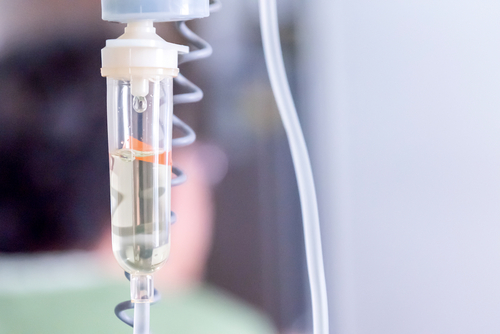25% of Patients in Spain on ERT Report Missed Doses Due to COVID-19

In Spain, a quarter of Gaucher disease patients being given enzyme replacement therapy (ERT) infusions at hospitals experienced dose interruptions due to the COVID-19 pandemic, a study reports.
Greater attention needs to be given to ways of ensuring continued treatment for these people, including ways of ensuring at-home use, its researchers wrote.
The study, “Direct and indirect effects of the SARS-CoV-2 pandemic on Gaucher Disease patients in Spain: Time to reconsider home-based therapies?” was published in the journal Blood Cells, Molecules, and Diseases.
As a result of the COVID-19 outbreak, the Spanish government declared a State of Alarm in mid-March that included a roughly three-month nationwide lockdown and a refocusing of healthcare resources. By the end of May, more than 239,000 people had been infected across the country.
Researchers set out to better understand how the pandemic has affected Gaucher patients in their country. They conducted a telephone survey from late March to late April, in association with the Spanish Gaucher Disease Foundation and the Spanish Association of patients and families affected by Gaucher disease.
In total, 110 people responded to the survey (median age of 47, range 3 to 84). Most (95%) had type 1 Gaucher disease; the remaining six had type 3. About a third of respondents (34%) had at least one comorbidity, with the most common being high blood pressure (17%).
Most participants (78%) were active workers, and 40% reported continuing at their usual workplaces, with 6% were working remotely.
Six respondents reported being in contact with a person confirmed to have COVID-19. One of two patients infected by the coronavirus, a 79-year-old with diabetes and not being treated with a specific Gaucher therapy, died.
Fifty-one patients (46.5%) were being treated with ERT, 49 (44.5%) with substrate reduction therapy (SRT), and 10 (9%) were not taking a therapy. Among those using an ERT, six had the therapy administered at home, and the others at a hospital. Most participants on SRT were taking oral Cerdelga (eliglustat, by Sanofi Genzyme). No bone crises were reported.
SRT patients did not report problems continuing with their medication, and no major problems were reported by people using ERT at home. However, among those being given ERT at a hospital, 25% reported missing at least one dose due rescheduling and a hospital’s priorities.
“While patients receiving oral therapy continue to receive their treatment even during the lockdown; patients receiving intravenous therapy [directly into the bloodstream] needed to change their schedule while 25% of the patients receiving the ERT at hospitals missed doses,” the researchers wrote.
Exactly half of these patients also reported anxiety about developing a severe COVID-19 infection. Among this group, 29% said they were taking medications (anxiolytics and antidepressants) for such reason.
“Our findings support the idea that new ways to ensure continued therapy for GD [Gaucher disease] patients, during a time of social disruption, such as the State of Alarm for COVID-19, need to be evaluated. It seems that home-based therapies (such as oral or home-delivery ERT) need to be reconsidered for these patients,” the scientists added.
They also drew attention to the need for continued evaluation of the pandemic’s effect on people with Gaucher. “The need to perform surveillance in patients with GD and to obtain epidemiological data in different countries is prioritary in order to establish optimal management of the disease.”



